48 Authentic German Beers Every Beer Lover Should Know
German beers represent a fascinating world of brewing excellence deeply rooted in centuries-old traditions.
The rich cultural heritage of these legendary beverages spans regions with unique brewing techniques and passionate craftsmanship.
Brewing mastery runs through German veins, creating liquid artworks that tantalize taste buds and honor generations of skill.
Each beer tells a complex story of regional pride, carefully selected ingredients, and meticulous production methods that transform simple grains into extraordinary libations.
Regional variations showcase remarkable diversity, from robust dark varieties to crisp, refreshing styles that reflect local landscapes and brewing philosophies.
Centuries of refined techniques have elevated German brewing to an internationally respected art form that continues to inspire beer enthusiasts worldwide.
Quality, precision, and authenticity define these remarkable beverages that represent more than just drinks - they embody cultural identity and tradition.
Your journey through these 30 classic German beers promises an unforgettable exploration of flavor, history, and craftsmanship:
German Beer Types for Every Stein
Crisp pilsners, smoky rauchbiers, and malty dunkels, Germany’s beer scene is rich and varied. Explore which types make Oktoberfest, and every day, a little more festive.
Weissbier
Weissbier stands out as a signature Bavarian wheat ale brewed with at least 50% malted wheat, delivering a distinctive cloudy appearance and signature mousse-like foam.
German brewers typically exceed the minimum wheat requirement, creating a complex beer with unique flavor profiles.
Specialized yeast strains infuse the brew with remarkable aromatic notes of clove, banana, and occasional bubble gum undertones.
Traditional brewing methods involve bottle fermentation, though this practice has become less common in modern production.
Malty and subtly bitter, weissbier offers a refreshing drinking experience that highlights wheat's essential characteristics.
German brewing traditions deeply influence this beer's exceptional quality and taste.
Wheat's high protein content contributes to its signature cloudy look and creamy texture.
Weissbier represents a beloved beer style that showcases Bavaria's rich brewing heritage.
Bayerisches Bier
Bavarian beer represents a centuries-old brewing tradition rooted in the 1516 Purity Law, which ensures only high-quality, locally-sourced ingredients create exceptional brews.
Scientific institutes meticulously monitor beer quality and production standards across Bavaria's impressive network of over 600 breweries.
Germany's beer capital produces more than 20 million hectoliters annually, featuring diverse styles like Pils, Lager, Dunkel, and Bock.
Traditional brewing techniques preserve authentic flavor profiles that make Bavarian beer globally renowned.
Brewers follow strict ingredient regulations, using only water, hops, and malted grains.
Regional variations showcase unique brewing approaches passed through generations.
Multiple brewing styles range from light Schankbier to robust Doppelbock, each reflecting distinct characteristics.
Scientific precision and cultural heritage combine to create world-class beer experiences that celebrate Bavarian brewing excellence.
Munchner Bier
Munich beer represents Bavaria's brewing excellence, combining centuries of tradition with strict purity standards established by the 1487 Munich Beer Purity Law.
Seven legendary breweries - Augustiner, Hofbrau, Paulaner, Hacker-Pschorr, Lowenbrau, Spaten, and Franziskaner - dominate Munich's beer landscape.
These breweries produce approximately 6 million hectoliters annually without using any additives.
Industrial expansion during the 19th century transformed brewing practices, yet these breweries maintained traditional methods.
Each brewery maintains exceptional quality through generations of brewing expertise.
Strict adherence to ethical brewing standards distinguishes Munich beer from other regional productions.
Bavarian brewing techniques continue to influence global beer manufacturing.
Munich's brewing culture remains a testament to Germany's commitment to exceptional beer craftsmanship.
Helles
Helles is a golden Munich-born lager crafted in 1894 as Bavaria's smooth response to Czech pilsner styles.
German brewers designed this beer to compete with emerging crisp golden beer trends while maintaining traditional brewing techniques.
Bavarian brewers carefully balanced malt characteristics with light hop profiles to create a refreshing drinking experience.
Traditional Helles presents a medium-bodied beer with soft texture and clean flavor profile.
Its golden color reflects careful brewing methods developed in southern Germany.
Light hop bitterness complements subtle malt sweetness without overwhelming the palate.
German brewing traditions shine through its refined and easy-drinking nature.
Beer enthusiasts appreciate its balanced complexity and smooth drinkability.
Marzen
Märzen beers emerge as classic Bavarian amber lagers with deep historical roots in German brewing traditions, originating in 1841 through Spaten brewery's innovative brewing techniques.
Munich brewers originally crafted these amber-colored beers during March, storing them in cool cellars to ferment and age until Oktoberfest celebrations.
Toasty malt characteristics define Märzen's rich flavor profile, complemented by a crisp hop bitterness and smooth medium body.
German brewing standards require specific amber color ranges and balanced malt-forward taste experiences.
Traditional brewing methods involved creating these beers before summer heat made fermentation challenging, ensuring stable preservation through cooler underground storage.
Initial versions appeared slightly darker than modern interpretations, reflecting traditional preservation techniques.
Oktoberfest celebrations now prominently feature Märzen as a signature beer style, connecting contemporary drinkers with centuries-old brewing practices.
Beer enthusiasts worldwide recognize Märzen as a quintessential representation of authentic German brewing excellence.
Oktoberfestbier
Oktoberfestbier represents Munich's brewing heritage with exclusive brewing rights reserved for six legendary breweries that craft an authentic amber-hued lager exclusively for global beer enthusiasts.
Brewed strictly under Bavarian Beer Purity Law standards since 1487, these special beers from Augustiner, Hacker-Pschorr, Hofbrau, Lowenbrau, Paulaner, and Spaten breweries maintain traditional brewing techniques.
Marzen-style lagers feature smooth malty profiles with light hop characteristics and alcohol content ranging between 5.5 to 6.2% ABV.
Festival-goers enjoy these golden-amber beers served exclusively at Munich's world-famous Oktoberfest celebration.
Each brewery maintains rigorous quality standards that preserve centuries-old brewing traditions.
Strict geographic limitations ensure only Munich-produced beers earn authentic Oktoberfestbier designation.
German brewing expertise shines through every carefully crafted sip of these exceptional lagers.
Dunkel
Dunkel is a rich Bavarian dark lager renowned for its smooth, medium-bodied profile and deep copper to dark brown appearance.
Munich malt defines its signature caramel-like and toasty character, creating a subtly sweet brew that glides effortlessly across the palate.
Brewers carefully craft this beer to deliver balanced flavors with hints of caramel, toffee, and nutty undertones.
German brewing traditions shine through its refined composition, ensuring a mellow drinking experience.
Hop presence remains understated, allowing the malt's complex characteristics to dominate the taste.
Beer enthusiasts appreciate its easy-drinking nature and balanced complexity.
Originating in Bavaria, dunkel represents a classic German brewing style that has endured for generations.
Munich's brewing heritage continues to influence this distinctive lager's exceptional quality.
Doppelbock
Doppelbock represents a robust German beer style originally crafted by Paulaner monks in Munich, delivering a potent brew with deep malt complexity and smooth character.
Munich brewers created this beer as a stronger version of traditional bock, translating "doppel" to mean double in strength and flavor intensity.
Ranging from golden to dark brown, these medium-bodied beers showcase rich maltiness with balanced hop undertones.
Bread and toasty aromas define its sensory profile, often complemented by subtle caramel notes.
Monks initially developed doppelbock as a liquid sustenance during fasting periods, providing essential nutrition.
Brewing techniques emphasize pronounced sweetness and substantial alcohol content between 6-7.5%.
Traditional German brewing standards ensure consistent quality and depth of flavor.
Each sip reveals layers of traditional brewing expertise deeply rooted in Bavarian beer culture.
Weizenbock
Weizenbock are robust German wheat beers combining complex wheat and barley malt characteristics with powerful alcohol strength between 6.5% and 9%.
Schneider Weisse Brauhaus brewery in Munich first crafted this unique beer style in 1907 as a sophisticated blend between traditional wheat beer and stronger doppelbock.
Munich brewers designed weizenbock with two primary color variations: pale golden and deep amber brown.
Darker versions showcase deeper malt complexity with caramel undertones and subtle dried fruit notes like raisins and plums.
Traditional brewing methods emphasize wheat's smooth texture and rich malted grain profile.
German brewing standards require specific yeast strains that produce signature banana and clove flavor nuances.
High alcohol content contributes to weizenbock's warming sensation and intense drinking experience.
Lager
Lagers are global beer champions crafted with bottom-fermenting Saccharomyces pastorianus yeast, distinguishing themselves through slower, cooler fermentation processes that create uniquely crisp and clean flavor profiles.
Beer enthusiasts recognize lagers as the world's most produced beer style, spanning diverse variations in color and alcohol content.
These beers ferment at lower temperatures compared to ales, resulting in smoother and more refined taste experiences.
German and Czech brewing traditions significantly influenced lager development, introducing iconic styles like pilsner and bock.
Traditional brewing methods involve careful temperature control and specific yeast strains that settle at beer's bottom during fermentation.
Specialized techniques ensure consistent quality and distinctive characteristics across different lager varieties.
European brewmasters pioneered innovative techniques that spread lager production worldwide.
Complex brewing science continues to evolve, expanding lager's global popularity and sophisticated brewing approaches.
Altbier
Altbier is a distinctive German beer style from Dusseldorf that bridges ale and lager brewing techniques through unique fermentation methods.
Brewed with top-fermenting yeasts at warm temperatures and then aged cool like lagers, this beer emerged in the 1880s to distinguish traditional brewing practices from newer Bavarian lager styles.
Full-bodied and ranging from copper to amber in color, altbier offers complex flavor profiles with nutty and toasty aromas and subtle fruity undertones.
These clean and crisp beers carry balanced characteristics that make them versatile food companions.
Beer enthusiasts appreciate their medium-bodied nature and smooth drinking experience.
Altbier pairs wonderfully with roasted meats, grilled fish, and aged cheeses.
German brewing traditions shine through its sophisticated yet approachable character.
Sophisticated beer drinkers seek out this remarkable brewing style for its nuanced taste and historical significance.
Bock
Bockbeer represents a traditional German bottom-fermenting lager originating in fourteenth-century Einbeck, crafted by master brewers following strict quality standards.
Named after "billy goat" in German, this rich and creamy beer ranges from golden to dark brown with complex malty characteristics.
Toasty and occasional caramel notes define its smooth flavor profile, complemented by light hopping.
Alcohol content typically ranges between 6.3 and 7.6% ABV, making it a robust brewing style.
Popular sub-styles include Maibock, Doppelbock, Eisbock, and Weizenbock, each offering unique taste variations.
Brewers traditionally serve bockbeer in tulip glasses to enhance its sensory experience.
Brewery logos often feature goat imagery, reflecting its linguistic origins.
Beer enthusiasts appreciate its historical significance and complex brewing techniques.
Dunkelweizen
Dunkelweizen represents a smooth German wheat ale blending dark and hefeweizen beer styles with rich copper to deep brown coloration.
Beer enthusiasts treasure this style for its distinctive banana and clove flavor profile emerging from unique wheat yeast strains.
Malty characteristics define its medium body and balanced texture, creating a complex drinking experience.
Subtle vanilla and bubblegum notes complement its bready, grainy essence.
Medium to high carbonation enhances its refreshing quality.
Traditional German brewing techniques contribute to its distinctive taste.
Wheat malts provide a soft, rounded mouthfeel.
Moderate alcohol content makes it an approachable and enjoyable beer selection.
Gose
Gose is a unique German beer style originating in Goslar and perfected in Leipzig, characterized by its distinctive salty and sour profile with coriander spicing.
Brewers first documented this beer in the 15th century, establishing its historical significance in German brewing traditions.
Malt and yeast aromas blend seamlessly with fruity and salty nuances, creating a complex drinking experience.
Leipzig became the epicenter of Gose production during the 18th century, transforming the beer into a regional specialty.
Medium sourness defines its flavor profile, setting it apart from other German beer styles.
Brewers carefully balance salt and spice to create its signature taste.
By the 19th century, Leipzig earned the nickname "Gose city" due to the beer's immense popularity.
Modern craft brewers continue to revive and celebrate this unique beer style, ensuring its legacy endures.
Kolsch
Kölsch is a unique pale yellow ale exclusively brewed in Cologne, Germany, following strict regional guidelines established by the Kölsch Convention in 1986.
German brewers protect this beer's authenticity through a designation of origin that prevents production outside Cologne's metropolitan area.
Brewing masters create this crisp, light beer using traditional fermentation techniques that comply with the 1516 German Beer Purity Law.
Its pale, clear appearance distinguishes Kölsch from other German beer styles.
Breweries in Cologne carefully craft this refreshing ale with precise brewing methods.
Small batches ensure exceptional quality and consistent flavor profile.
Local German breweries take pride in maintaining Kölsch's traditional brewing standards.
Visitors to Cologne can enjoy this regional specialty in authentic beer halls and local establishments.
Rauchbier
Rauchbier is a distinct German beer style originating from Bamberg, characterized by its unique smoky flavor profile derived from malt dried over open flames.
Medieval brewers initially used smoke-dried malt as a standard brewing technique before drum kilns emerged in the 1880s.
Bamberg breweries like Schlenkerla and Spezial maintained this traditional smoking process, preserving the beer's signature characteristic.
Amber-colored and clear, these lagers deliver medium hop bitterness with complex smoke and malt aromas.
Brewers carefully select specific wood types to enhance the beer's distinctive smokiness.
German brewing traditions deeply influence this beer's production method.
Fermented using traditional lager techniques, rauchbier represents a historical brewing approach.
Beer enthusiasts worldwide appreciate its rich, smoky complexity as a testament to Franconian brewing heritage.
Schwarzbier
Schwarzbier represents Germany's smooth dark lager with deep historical roots as one of the world's oldest beer styles.
Brewers craft this beer using malted barley that creates a lightly roasted malt profile with subtle chocolate, nutty, and caramel undertones.
Beer enthusiasts enjoy its refreshing character and clean, dry finish that balances subtle hop bitterness against rich malt complexity.
German brewing traditions transform this beer into a gentle yet flavorful experience that never overwhelms the palate.
Schwarzbier pairs perfectly with hearty foods like sausages, roasted meats, and chocolate desserts.
Beer lovers appreciate its moderate alcohol content and drinkable nature.
Traditional German breweries continue producing this classic style with meticulous attention to brewing techniques.
Regional variations showcase subtle differences in flavor and brewing approaches that reflect local preferences.
German Pilsner
German Pilsner embodies a crisp, refreshing lager pioneered by Bavarian brewer Josef Groll in the 1870s, originally inspired by Czech brewing traditions.
Brewers craft this beer using barley malt and select hops that create a distinctive flowery, herbal flavor profile.
Light golden in color, German Pilsners balance moderate malt sweetness with a clean, sharp hop bitterness that defines its character.
Modern brewing techniques developed after World War II further refined the style's quality and consistency.
German breweries perfected the lager by experimenting with local hop varieties and precise fermentation methods.
Beer enthusiasts recognize the style for its pale golden appearance and exceptionally smooth drinking experience.
Regional variations across Germany showcase subtle differences in hop selection and brewing approach.
Traditionally served in tall, slender glasses, German Pilsners represent a pinnacle of German brewing craftsmanship.
Dortmunder Export
Dortmunder export beer originated in Germany's industrial city as a refreshing lager designed for hardworking laborers seeking a satisfying brew.
Modeled after pilsners, this pale and clear beer balances malty sweetness with hop flavors and delivers a smooth drinking experience.
Brewers craft this style with a crisp, easy-drinking profile that ranges between 5 to 6% alcohol by volume.
German brewing traditions carefully developed this beer to quench thirst and provide workers with a quality beverage.
Industrial workers in Dortmund specifically inspired its creation in the late 19th century.
Brewmasters use specific techniques to achieve its signature clean taste.
German beer culture embraces this style as a reliable and straightforward lager.
Dortmunder export represents a practical and enjoyable beer with broad appeal.
Dortmunder Bier
Dortmund beer embodies a rich brewing heritage tracing back to 1293, representing a legendary German beer tradition crafted with meticulous precision.
German brewers have exported this distinctive beer worldwide, establishing its international reputation for quality and authenticity.
Dortmunder Actien Brauerei (DAB), founded in 1868, continues producing this signature beer using exclusively Dortmund water.
Strict adherence to German Purity Law ensures exceptional brewing standards and consistent flavor profile.
Each batch reflects generations of brewing expertise and regional craftsmanship.
Water sourcing plays a critical role in creating its unique character and taste.
Regional brewing techniques contribute to its distinctive smoothness and complexity.
Centuries of brewing knowledge shape every drop of this iconic German beer.
Berliner Weisse
Berliner Weisse represents a unique wheat beer with an extraordinarily light, sour character that originated in Germany during the 19th century.
Lactic acid bacteria create its signature funky and tart profile, making it dramatically different from traditional beer styles.
Napoleon once famously called this beer the "Champagne of the north" due to its distinctive taste.
German brewers traditionally serve this low-alcohol beer with raspberry or woodruff sugar syrups to balance its intense sourness.
Craft breweries have recently revived this nearly extinct beer style, breathing new life into its historical legacy.
Pilsner is sometimes mixed with Berliner Weisse to soften its sharp flavor profile.
Historians suggest the beer likely evolved from the extinct Breyhan beer in Hannover.
Wheat and fermentation techniques define this refreshing German beer tradition.
Eisbock
Eisbock is a powerful German beer style distinguished by its unique freeze distillation process that concentrates flavors and alcohol content.
German brewers create this intense beer by partially freezing and removing water from a traditional bock beer, resulting in a rich brew with complex malt characteristics.
This strong beer typically ranges from 9 to 14% ABV and presents clear amber to dark brown appearances.
Dark fruit and caramel notes complement its robust toasted malt profile.
Smooth and full-bodied, eisbock maintains a balanced character despite its high alcohol strength.
Traditional brewing methods from Germany highlight this beer's exceptional craftsmanship.
Beer enthusiasts prize eisbock for its concentrated and sophisticated drinking experience.
Maibock
Maibock is a seasonal Bavarian lager marking spring's arrival with its golden to light amber appearance and crisp flavor profile.
German brewers craft this special beer to welcome garden season, featuring medium body and smooth malt characteristics.
Traditional versions boast alcohol content between 6 to 8 percent, delivering stronger hop presence than standard bock styles.
Rich grainy notes blend with subtle spice and herbal undertones, creating a refreshing drinking experience.
Lighter and drier than winter bocks, this spring beer signals warmer days and renewed agricultural activities.
Brewers carefully balance malt sweetness with hop bitterness to achieve a clean, balanced taste.
Historical brewing traditions preserve this unique beer style, connecting modern drinkers with Bavarian agricultural celebrations.
Spring festivals and beer gardens showcase maibock as a celebrated seasonal beverage.
Kulmbacher Bier
Kulmbacher Bieris represent a time-honored German brewing tradition deeply rooted in monastic craftsmanship since 1349.
Brewers strictly follow Germany's Beer Purity Law (Reinheitsgebot), using only four pure ingredients: malt, hops, yeast, and local spring water.
Monasteries pioneered these brewing techniques, creating a sophisticated beer with complex flavor profiles.
German brewing communities developed these methods centuries before modern commercial production.
Regional breweries near Kulmbach maintained strict quality standards throughout generations.
Spring water from nearby mountain sources contributes to the beer's unique taste.
Soft mineral content enhances fermentation processes.
Historical records show continuous brewing evolution in this Bavarian region.
Roggenbier
Roggenbier represents a rare Bavarian rye beer with deep historical roots tracing back to pre-1516 brewing traditions.
German brewers craft this distinctive beer using at least 50% malted rye, creating a unique beverage with a spicy, complex profile.
Dark and medium-bodied, roggenbier delivers a nuanced taste experience featuring subtle fruity undertones from traditional weizen yeast.
Brewers carefully balance the beer's moderate bitterness with gentle malt sweetness and minimal hop flavor.
Low alcohol content around 5% makes roggenbier an approachable and smooth drinking option.
Although nearly extinct after Germany's Beer Purity Law, passionate brewers reintroduced this style in the 1980s.
Small regional breweries now produce roggenbier as a standard or seasonal offering.
Beer enthusiasts appreciate this historic brew for its traditional brewing method and distinctive rye character.
Reuther Bier
Reuther Bier represents a unique Bavarian beer exclusively crafted in Reuth bei Erbendorf, exclusively produced by Schlo brewery.
Four distinct styles—Lagerbier, Schlo-Pils, Weibier, and Spezial—showcase the brewery's brewing expertise.
Each beer must be brewed using Artesia mineral water sourced directly from the brewery's spring.
Regional hops and malt form the core ingredients of these beers.
Strict adherence to the 1516 Bavarian Beer Purity Law governs their production process.
Variations among the beer styles include differences in alcoholic strength and flavor profiles.
Bavaria's brewing traditions remain deeply embedded in every Reuther Bier batch.
Artesian water and local ingredients ensure an authentic drinking experience.
Lichtenhainer
Lichtenheiner beer captures regional German brewing heritage with its unique smoked wheat beer characteristics from Thuringen.
Small-batch brewers craft this historical beer style using traditional methods passed down through generations.
Low alcohol content around 4% makes it a sessionable choice for beer enthusiasts.
Bright yellow to light golden in color, Lichtenheiner offers a complex flavor profile with moderate sourness and subtle smoky undertones.
Moderate carbonation enhances its refreshing wheat beer qualities.
Fruity and bready aromas complement its light to medium body.
Brewing techniques from the 19th century influence its distinctive taste.
Regional ingredients contribute to its authentic flavor and brewing tradition.
Hofer Bier
Hof brewing represents a centuries-old German beer tradition originating in the 14th century with distinctive regional characteristics.
Local brewers craft exceptional beers using carefully selected regional ingredients and naturally soft brewing water.
Beer production focuses on maintaining high-quality standards through meticulous ingredient selection.
Small-batch brewing techniques ensure superior flavor profiles and consistent quality.
Regional water sources contribute unique mineral characteristics to each brew.
Specialized local techniques help preserve traditional brewing methods.
Beer varieties range from light lagers to rich, complex dark ales.
Mainfranken Bier
Mainfranken Bieris a protected regional beer designation celebrating centuries of brewing excellence in Lower Franconia, Germany.
Traditional brewing methods dating back to 1381 define these exceptional beers, which showcase distinctive regional characteristics.
Local water and barley contribute to their unique flavor profile and consistent quality.
Brewers carefully follow historical techniques passed through generations of artisan beer makers.
Regional regulations ensure strict production standards and authentic brewing processes.
Lower Franconian breweries maintain rigorous quality controls for each batch.
Malt selection and water sourcing play critical roles in creating these distinctive brews.
Beer enthusiasts value Mainfranken Bieris for their deep connection to local agricultural and brewing traditions.
Bremer Bier
Bremen beer represents Germany's oldest brewing tradition, tracing its roots to 1200 when local brewers established robust beer-making techniques following strict quality standards.
German Purity Law from 1516 ensures these beers contain only premium malt, hops, yeast, and water, guaranteeing exceptional taste and quality.
Northern European markets have long celebrated Bremen's brewing excellence, with breweries consistently producing world-class beer styles.
Export markets have recognized Bremen as a significant beer producer since the 13th century.
Regional brewing techniques pass through generations, maintaining authentic production methods.
Breweries maintain rigorous quality control processes for every batch.
Beer varieties range from traditional lagers to innovative craft selections.
German brewing expertise continues to distinguish Bremen's beer reputation internationally.
Germany’s Top Beer Producers: Names to Watch
From historic family breweries to modern craft innovators, German producers are leading the way. Get to know who’s pouring the best brews in the land of beer.
Schneider Weisse G. Schneider & Sohn
Schneider Weisse represents a legendary wheat beer crafted by G. Schneider & Sohn, a historic Bavarian brewery founded in 1872 by Georg Schneider I.
German brewing tradition flows through every carefully brewed barrel of this exceptional wheat beer, which has maintained family ownership for generations.
Kelheim-based brewmasters continue using time-honored techniques that ensure remarkable quality and authentic flavor profiles.
Traditional wheat beer styles define this brewery's commitment to excellence, with generations of expertise informing each brewing process.
European beer connoisseurs recognize Schneider Weisse as a premium wheat beer with deep roots in Bavarian brewing culture.
Rich amber coloration and complex wheat malt characteristics distinguish this beer from standard wheat varieties.
Smooth wheat notes and balanced flavor complexity make Schneider Weisse a standout beverage among German beer selections.
Schlossbrauerei Unterbaar
Schlossbrauerei Unterbaar embodies Bavaria's rich brewing heritage through meticulously crafted beers rooted in centuries-old Swabian traditions.
Located in Baar, this historic brewery specializes in authentic German beer styles with unparalleled precision and quality.
Regional malts and hops contribute distinctive flavor profiles that reflect the landscape's unique terroir.
Precise fermentation processes ensure each beer maintains exceptional clarity and balanced taste.
Traditional copper brewing equipment enables consistent production of classic German beer varieties.
Family ownership guarantees continued commitment to original brewing standards.
Visitors can experience genuine Bavarian brewing culture through their carefully produced beer selections.
Crew Republic Brewery
Crew Republic crafts innovative craft beers in Bavaria with an adventurous approach to brewing.
German brewing traditions inspire their experimental beer-making philosophy of sourcing global hops for distinctive flavor profiles.
Small-batch production allows them to explore unique taste combinations beyond traditional German brewing methods.
Their commitment to quality drives them to constantly research and select premium hop varieties from international sources.
Craft beer enthusiasts appreciate their bold approach to challenging conventional brewing techniques.
Each brew reflects their passion for creating distinctive beer experiences that stand out in Bavaria's competitive beer market.
Their beer-making philosophy centers on pushing boundaries and introducing unexpected flavor combinations.
Crew Republic represents a new generation of independent brewers reimagining German beer culture.
Bayerische Staatsbrauerei Weihenstephan
Bayerische Staatsbrauerei Weihenstephan stands as a legendary German brewery with unparalleled brewing heritage spanning centuries of continuous operation.
Founded on Weihenstephan Hill in Bavaria, Germany, this state brewery traces its origins to a monastery founded in 725 AD by Benedictine monks dedicated to beer production.
German brewing experts recognize Weihenstephan as the world's oldest operational brewery, maintaining strict adherence to the historic Reinheitsgebot (Beer Purity Law) established in 1516.
Beer enthusiasts worldwide respect the brewery's commitment to traditional brewing methods and exceptional quality standards.
Weihenstephan produces an impressive range of beer styles, including wheat beers, lagers, and seasonal brews that showcase Bavarian brewing expertise.
Located in Freising, Bavaria, the brewery continues its legacy of crafting premium beers using time-honored techniques.
Each beer reflects generations of brewing knowledge passed down through centuries of meticulous practice.
Distelhauser Brauerei Ernst Bauer
Distelhauser Brewery offers authentic German beer crafted with generations of brewing expertise in Baden-Württemberg's Tauberbischofsheim region.
Established in 1811, this family-owned brewery specializes in creating traditional lagers and wheat beers using premium local ingredients.
Ernst Bauer's legacy continues through meticulous brewing techniques passed down through multiple generations.
Regional brewing traditions shape their signature beer styles, emphasizing quality and precision.
Germany's strict beer purity laws influence their brewing process, ensuring exceptional taste and consistency.
Small-batch production allows careful monitoring of each beer's quality and character.
Located in the picturesque Distelhausen village, the brewery maintains strong connections to its historical roots.
Their commitment to traditional brewing methods distinguishes Distelhauser as a respected regional beer producer.
Schlossbrauerei Autenried
Schlossbrauerei Autenried represents a historic Bavarian brewery nestled in Germany's Swabia region, crafting exceptional traditional beers within the walls of an 18th-century castle near Gunzburg.
Located in the picturesque Autenried Castle, this brewery preserves centuries-old German brewing techniques that define its distinctive beer production.
Their beer portfolio includes classic lagers, pale ales, and unique Bavarian specialties that reflect the region's rich brewing heritage.
Expert brewmasters carefully select ingredients to ensure each beer meets rigorous taste and quality expectations.
Small-batch production allows for meticulous attention to detail and preservation of traditional brewing practices.
Regional brewing traditions strongly influence their beer-making process, emphasizing authenticity and flavor complexity.
Familienbrauerei Bauhofer
Bauhofer Family Brewery embodies generations of German brewing excellence, crafting exceptional beer through a century-old tradition of passionate family craftsmanship in Renchen-Ulm's Ortenau region.
Founded in 1852, this regional brewery blends classic brewing methods with contemporary production techniques to create distinctive beer varieties.
Baden-Württemberg's rich brewing heritage flows through every batch of beer produced at this small, independent establishment.
Meticulous attention to ingredient selection and brewing processes distinguishes their beer from mass-produced alternatives.
Regional ingredients and time-honored techniques contribute to the brewery's distinctive flavor profiles.
Small-scale production ensures each beer batch receives careful monitoring and maintains exceptional standards.
Family ownership continues to drive their dedication to authentic German brewing traditions.
Brauerei Gebruder Maisel
Maisel Weissbier represents Bavaria's rich wheat beer tradition crafted by Maisel Brothers Brewery since 1887 in Bayreuth, Germany.
German wheat beers showcase exceptional brewing expertise through carefully balanced fermentation processes.
Family-owned Maisel brewery maintains historic brewing techniques while introducing modern innovations.
Wheat beers feature distinctive cloudy appearance from unfiltered wheat and barley grains.
Bavarian brewing standards ensure high-quality ingredients and precise brewing methods.
Maisel Weissbier delivers complex flavor profiles with subtle banana and clove notes.
German beer enthusiasts recognize this wheat beer for its smooth, refreshing character.
Brewery generations have perfected this signature beer through generations of brewing mastery.
Private Landbrauerei Schonram
Private Landbrauerei Schonram epitomizes Bavarian brewing excellence with its heritage dating back to 1780, nestled in Bavaria's picturesque Petting municipality.
German brewing traditions pulse through every beer crafted at this family-run brewery, which skillfully balances centuries-old techniques with contemporary innovation.
Located in the small village of Schonram, the brewery represents a passionate commitment to quality and regional brewing culture.
Its reputation extends beyond local borders, attracting beer enthusiasts who seek genuine Bavarian brewing craftsmanship.
Traditional copper brewing equipment stands alongside updated technology, ensuring consistent and superior beer quality.
Visitors can experience firsthand the meticulous brewing process that transforms local ingredients into exceptional beer.
Seasonal and classic beer styles showcase the brewery's deep understanding of Bavarian brewing heritage.
German Beers (Styles and Brands) That Define a Nation
Raise a glass to legendary brands and styles that capture Germany’s brewing spirit. Whether you love a classic lager or something bold, you’ll find a new favorite here.
Schneider Weisse G. Schneider & Sohn Tap6 Aventinus
Mein Aventinus is Bavaria's legendary wheat beer, a dark ruby-colored Doppelbock brewed since 1907 with an intense, fiery character that warms you to the core.
This robust wheat beer delivers a complex sweet malty aroma that invites deep indulgence and sensory exploration.
Its sturdy body and well-balanced profile make it a perfect companion for rustic dishes and dark roasted meats.
Brewers craft this beer with traditional techniques passed down through generations.
Rich, warming notes dominate the drinking experience.
Deep ruby colors hint at its complex flavor profile.
Strong yet tender, Aventinus represents Bavarian brewing mastery.
Smooth malty undertones complete this exceptional beer's extraordinary journey.
Schlossbrauerei Unterbaar Unterbaarer Dunkles Weizen
Unterbaarer Dunkles Weizen stands as a robust Bavarian dark wheat beer brewing excellence from Schlossbrauerei Unterbaar's traditional German production methods.
German brewers craft this exceptional beer by blending wheat and barley malts to create a complex flavor profile with deep roasted undertones.
Dark amber to brown in color, the beer delivers rich malty characteristics with subtle hints of caramel and chocolate notes.
Wheat beer enthusiasts appreciate its smooth texture and balanced complexity that sets it apart from standard wheat brews.
Schlossbrauerei Unterbaar has produced this style since the late 19th century, maintaining strict brewing traditions.
Alcohol content typically ranges between 5.3% and 5.7%, making it a moderate strength beer.
German beer culture celebrates this style as a traditional southern Bavaria beverage.
Beer lovers recognize Unterbaarer Dunkles Weizen as a premium wheat beer representing authentic German brewing expertise.
Schneider Weisse G. Schneider & Sohn Tap9 Aventinus Eisbock
Eisbock is a luxurious German beer crafted through an intense freezing technique that concentrates its flavors and alcohol content.
Master brewers remove ice crystals during the freezing process, creating a rich mahogany-colored beer with deep complexity.
Dark fruit notes of plum and banana mingle with spicy clove undertones and subtle hints of bitter almond and marzipan.
Originating in Bavaria, this strong beer typically ranges between 9-14% alcohol by volume.
Robust and smooth, eisbock offers a velvety texture that makes it perfect as a digestif.
Skilled German brewers carefully mature this beer using traditional methods passed down through generations.
Best served in a balloon glass, eisbock pairs wonderfully with desserts like tiramisu and dark chocolate.
Each sip reveals layers of intricate flavor that showcase Germany's brewing expertise.
Brauerei Aying Franz Inselkammer Ayinger Urweisse
Chimay Première represents a classic Belgian Trappist ale with golden-amber richness that delivers complex fruit notes and subtle spice characteristics.
Belgian monks brew this exceptional ale using traditional methods passed through generations.
Its sophisticated profile combines apple, soft fruit, and gentle clove undertones.
You detect a dry, crisp palate balanced with remarkable depth.
Monks carefully craft this beer following strict monastic brewing traditions.
Its alcohol content ranges around 7% ABV.
Each sip reveals nuanced flavor layers typical of authentic Trappist brewing.
Beer enthusiasts prize this ale for its extraordinary complexity and balanced character.
Schlossbrauerei Autenried Autenrieder Leonhardi Bock
Leonhardi Bock stands out as a powerful German beer with deep malty characteristics and an impressive 18.5% original wort.
Dark amber hues signal its rich brewing heritage and complex flavor profile.
Brewed in traditional German style, this classic beer offers a smooth drinking experience with robust malt undertones.
Beer enthusiasts appreciate its balanced strength and exceptional drinkability.
Its deep color hints at the complex brewing process and carefully selected ingredients.
Leonhardi Bock delivers a memorable taste that connects drinkers to authentic German brewing traditions.
Malty notes dominate the beer's character, creating a satisfying sensory experience.
Powerful yet soft, this beer represents generations of brewing expertise.
Familienbrauerei Bauhofer Bauhofer Maibock
Bock beer embodies Germany's rich brewing tradition with its robust, malty profile and high alcohol content.
German monks originally crafted this strong lager during fasting periods as a liquid bread substitute.
Brewers carefully select specific malts to create its signature deep copper color and intense flavor.
Traditional bock styles range from lighter maibock to darker doppelbock variations.
Fermentation processes give these beers their distinctive smooth, rich characteristics.
Alcohol levels typically range between 6% and 7%, making bock a potent beverage.
Munich and Bavaria remain primary regions for authentic bock beer production.
Seasonal celebrations often feature these hearty German brews as central attractions.
Braufactum Progusta
BraufactuM Progusta represents Germany's pioneering India Pale Ale, first crafted in 2010 as an innovative brewing breakthrough.
German brewers launched this distinctive beer as the country's inaugural IPA, marking a significant milestone in national brewing history.
United States beer enthusiasts can now enjoy this unique draught experience through recent import channels.
Brewing experts carefully developed the recipe to balance traditional German brewing techniques with modern craft beer approaches.
Rich hop flavors distinguish this premium beer from standard German lager styles.
International beer markets have embraced this groundbreaking brew as a testament to German brewing innovation.
Distinctive hop profiles provide complex taste notes that challenge conventional German beer expectations.
Beer connoisseurs recognize Progusta as a remarkable example of Germany's evolving craft beer landscape.
Klosterbrau Bamberger Rauchbier
Klosterbrau Rauchbier merges classic German brewing techniques with intense smoky flavors that define this unique beer experience.
Dark black with a creamy beige head, this Bavarian brew captivates beer enthusiasts with its distinctive aroma of smoked elements and subtle hop notes.
Beechwood smoke infuses the malt during drying, creating complex flavor layers of liquorice, smoked ham, and dark chocolate.
Hallertau aroma hops contribute a balanced fruity undertone that softens the intense smokiness.
Roasted caramel notes add depth to the beer's rich profile.
Each sip reveals intricate flavor combinations that showcase traditional brewing craftsmanship.
Beer lovers seeking authentic German brewing traditions will find this rauchbier a remarkable sensory journey.
Connoisseurs particularly appreciate its sophisticated and bold taste profile.
CREW Republic Brewery Crew Republic Jackpot
New England IPA brews a tropical storm of juicy, orange-hued beer that explodes with passion fruit and citrus hop aromas.
Craft beer enthusiasts treasure this hazy style for its intense fruity profile and soft, smooth texture.
Originating in Massachusetts, the brew challenges traditional IPA expectations with its unfiltered appearance and reduced bitterness.
Brewers create the beer by adding massive amounts of hops during fermentation to maximize flavor complexity.
Its light body and balanced acidity make it supremely refreshing for warm summer days.
Beer lovers appreciate the vibrant orange color and tropical fruit notes.
Modern brewing techniques give the beer its signature cloudy look.
Craft breweries across America now produce their own versions of this popular beer style.
What Styles of German Beer Are Available in Non-Alcoholic Versions?
Germany’s rich beer heritage extends into the non-alcoholic realm, offering a variety of styles that cater to those seeking flavor without the alcohol:
These options allow beer enthusiasts to enjoy the taste and culture of German brewing while opting for a non-alcoholic experience.

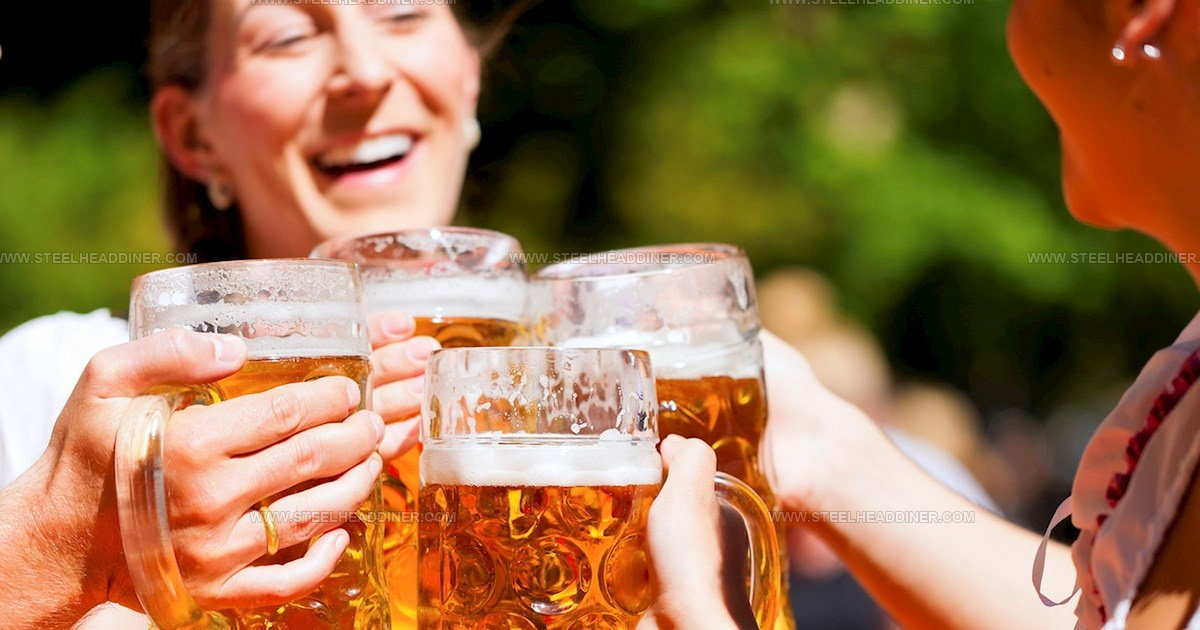
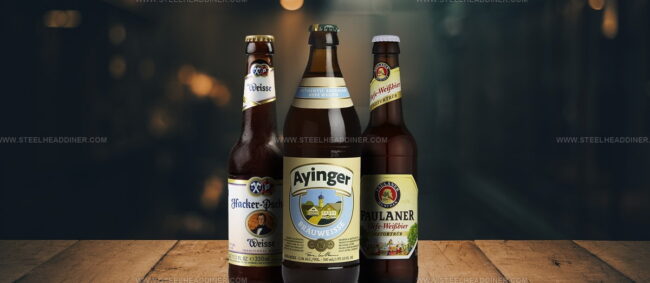
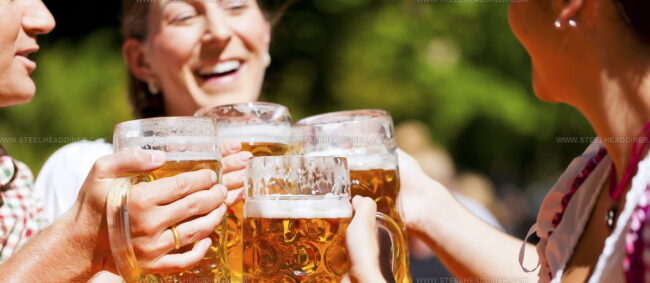
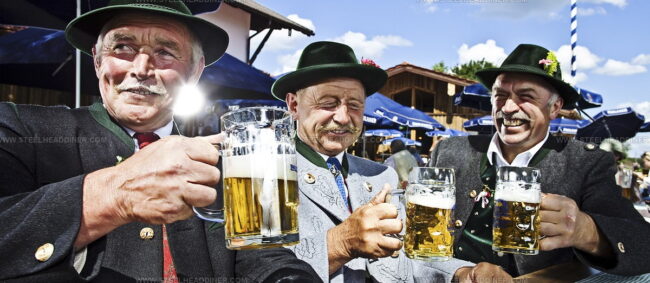
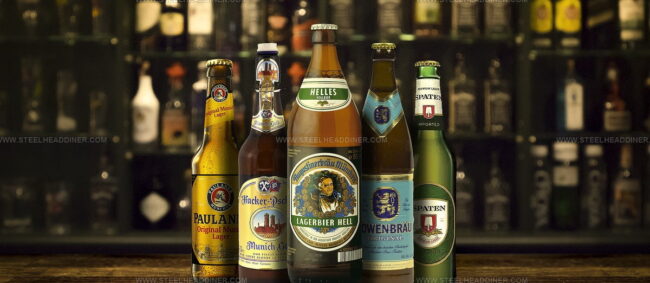
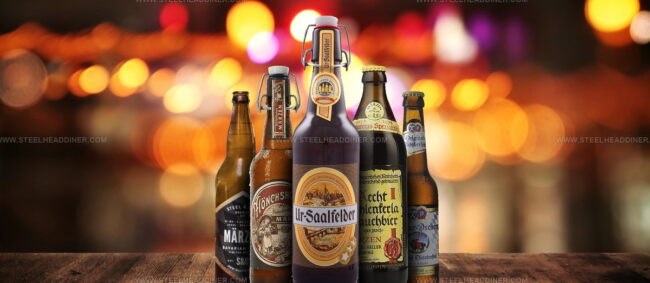
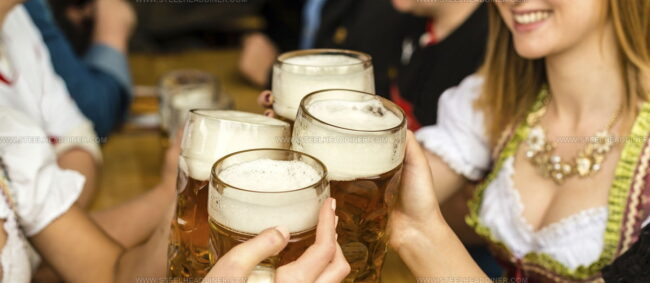
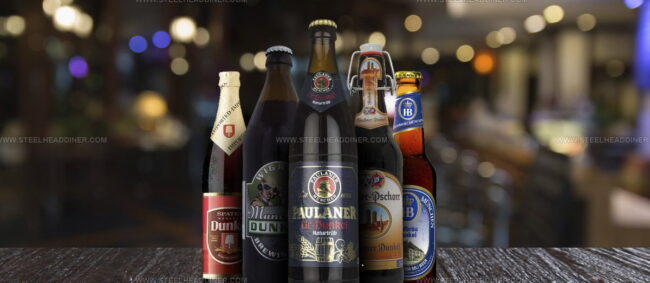
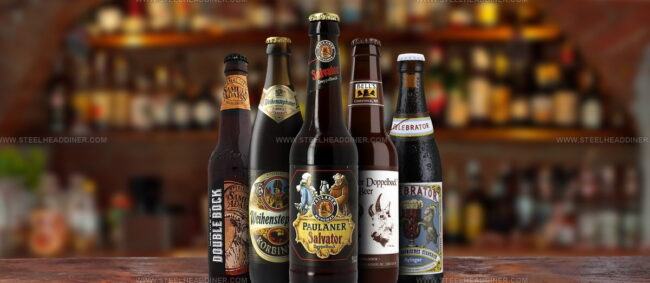
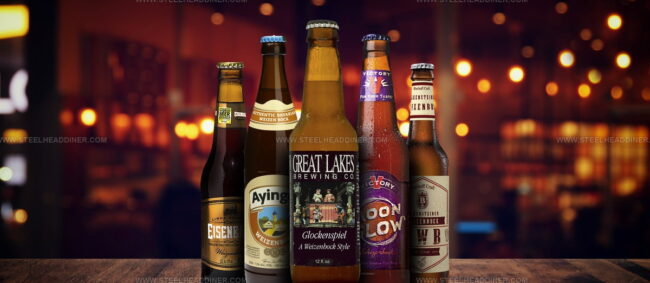
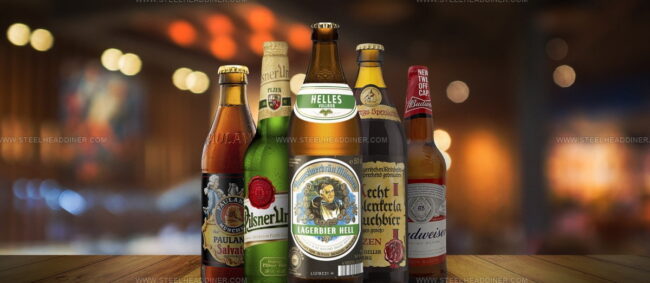
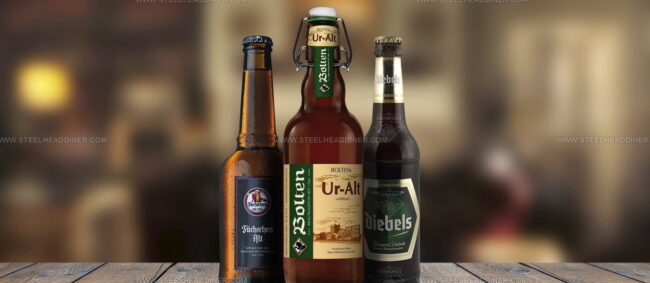
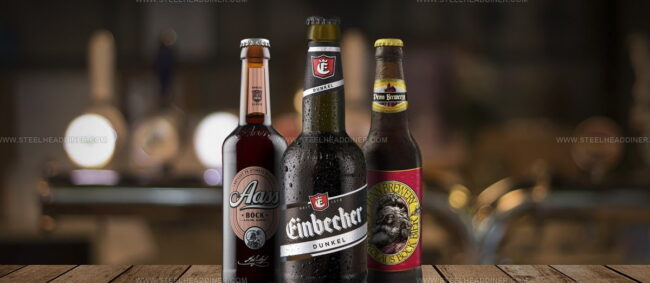
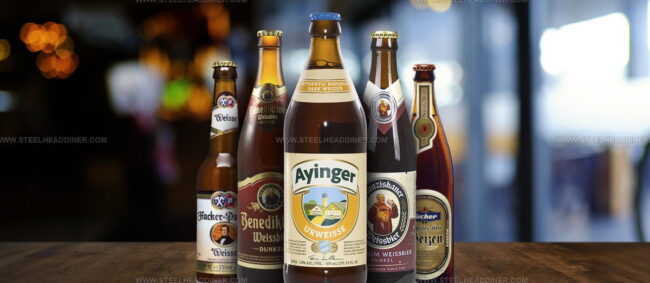
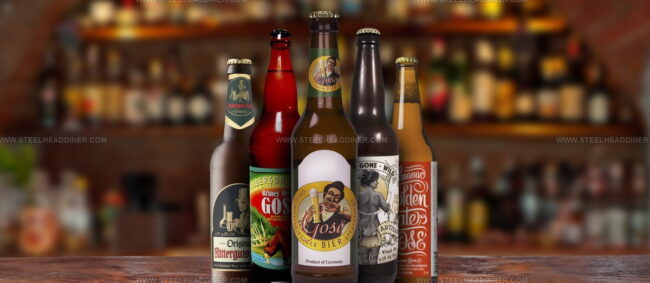
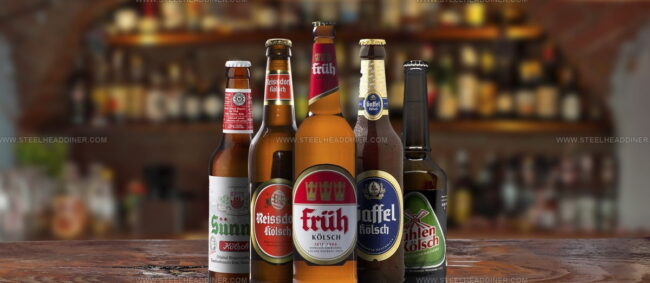
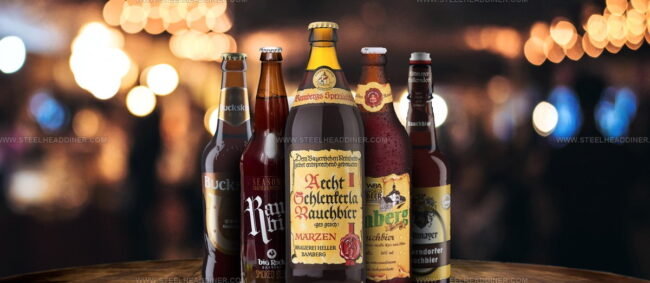
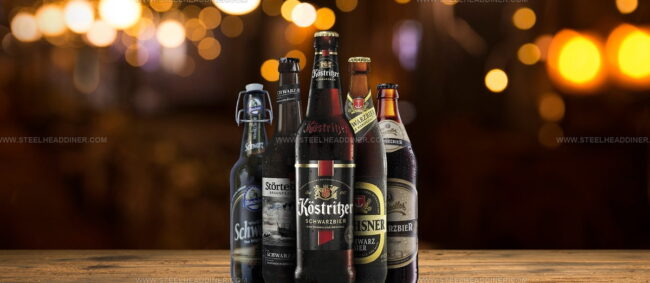
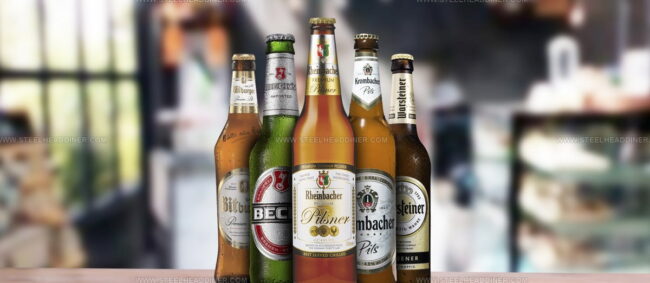
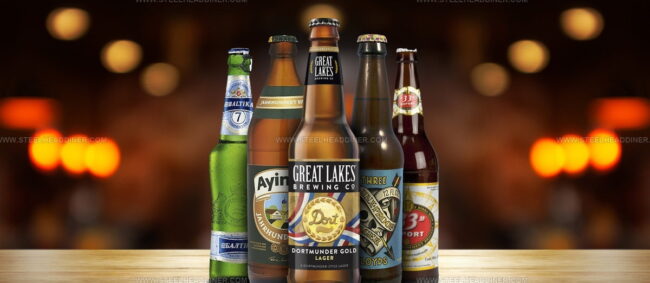
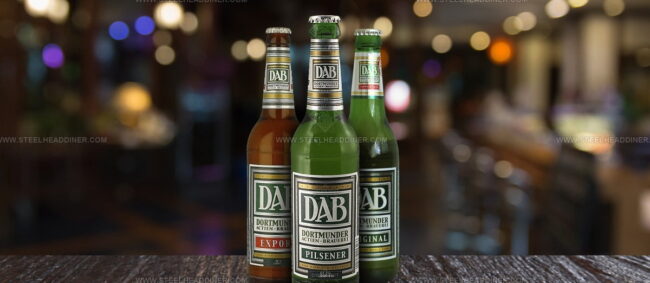
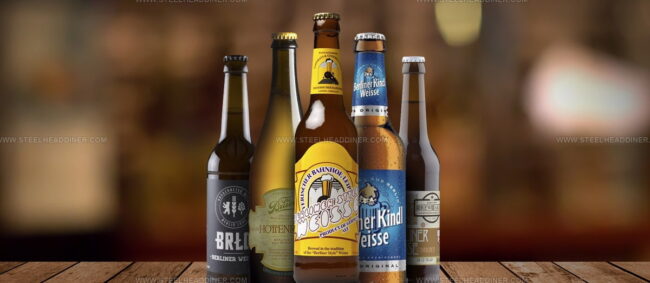
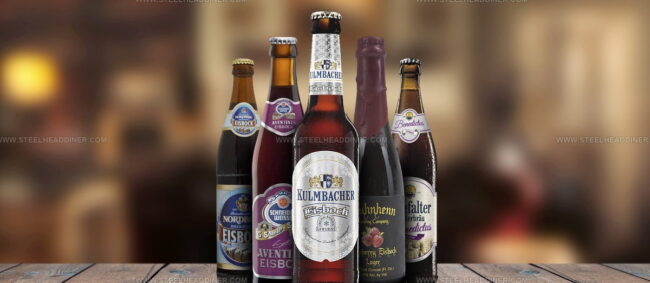
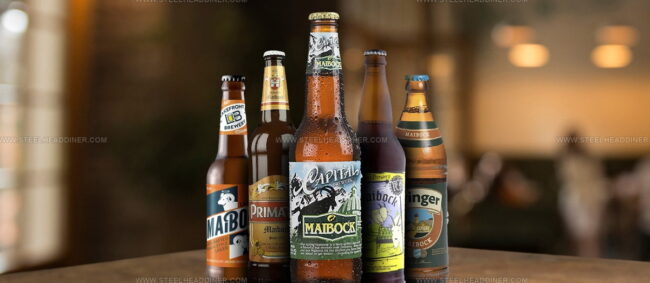
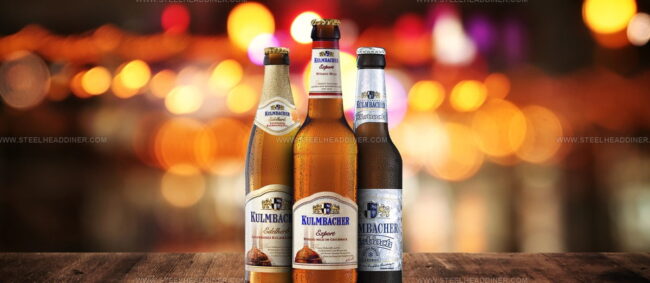
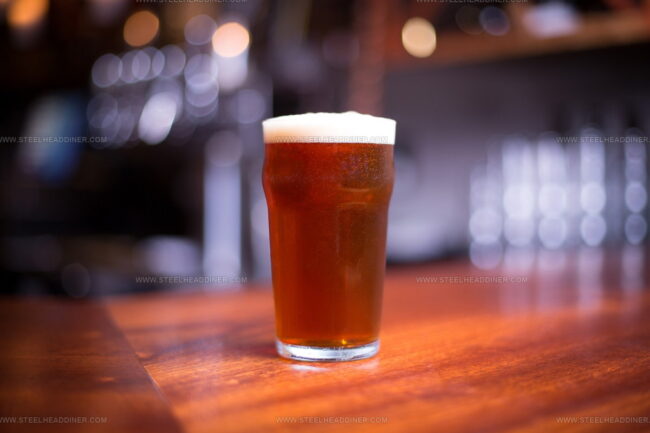
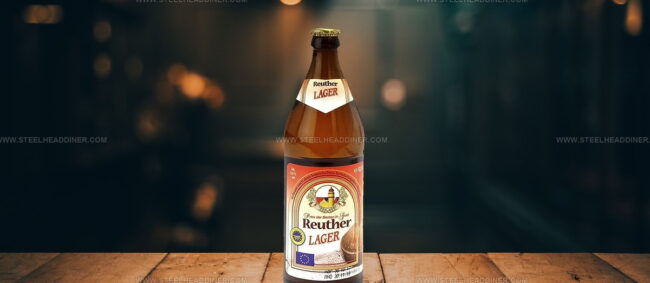
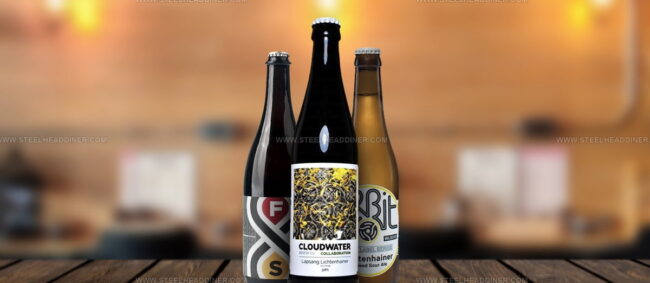
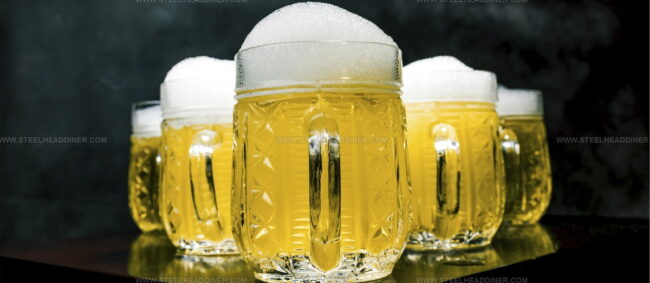
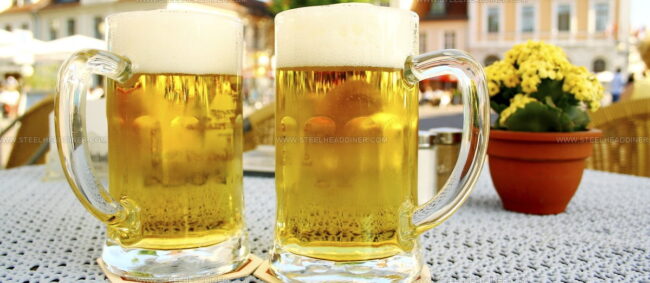
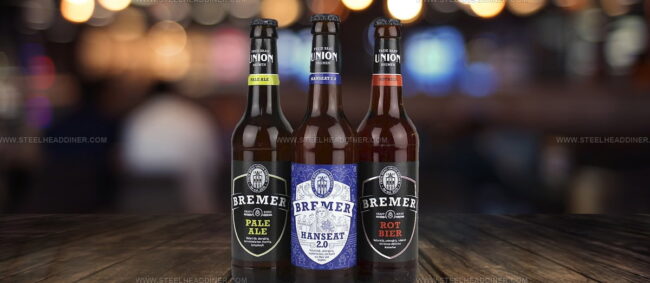
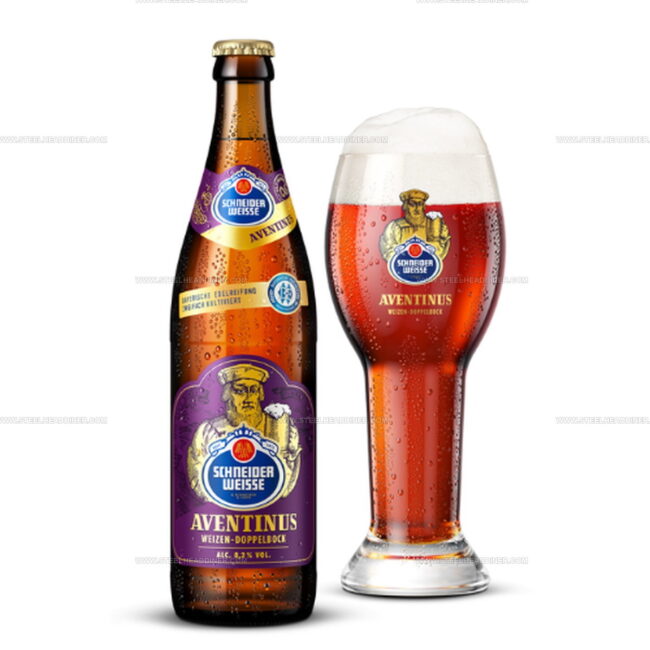
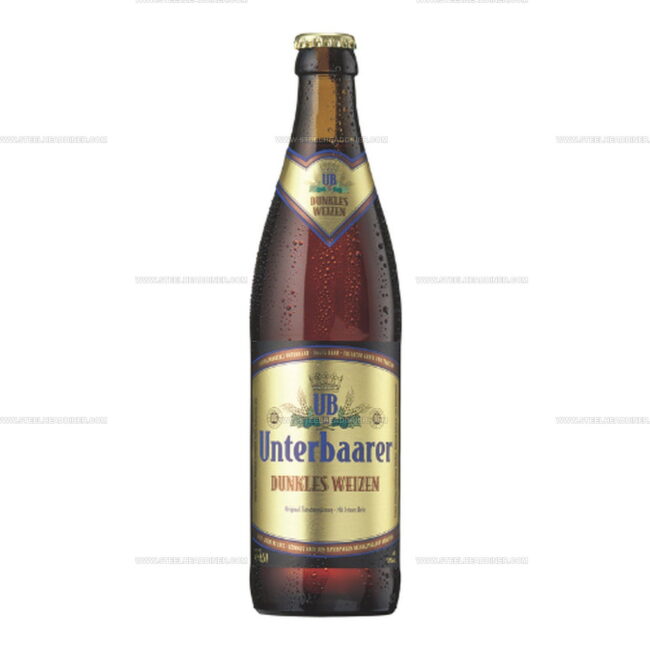
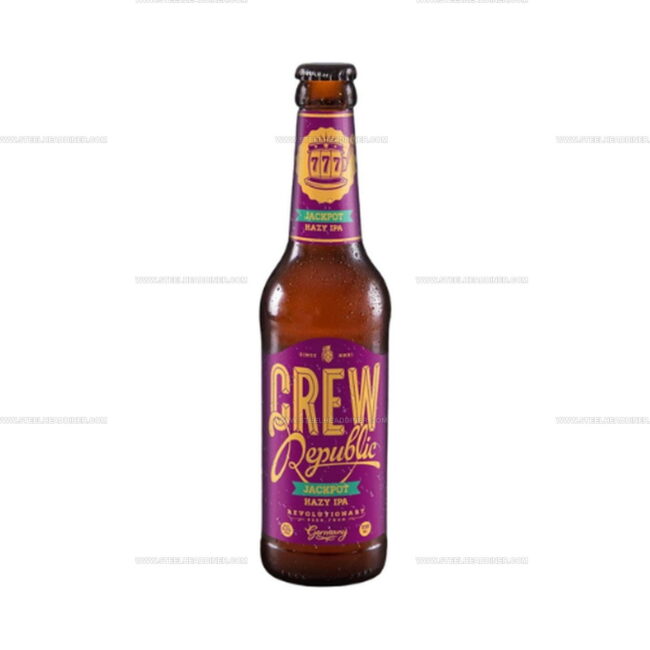
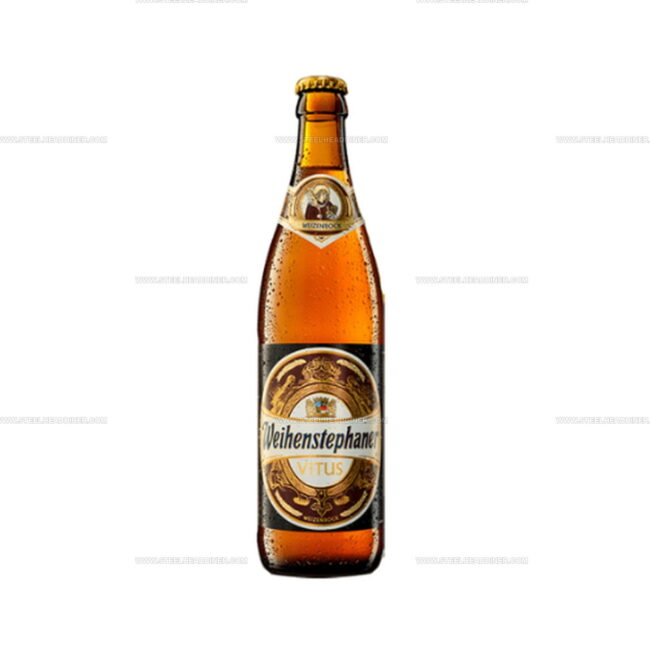
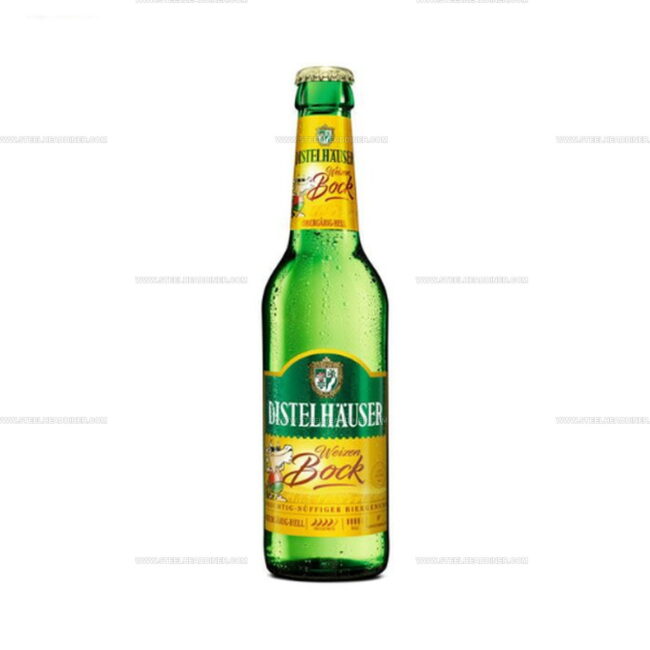
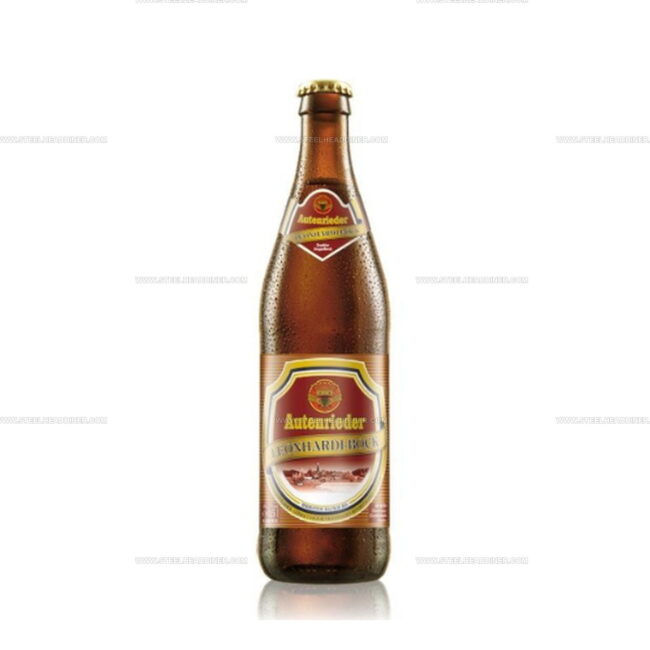
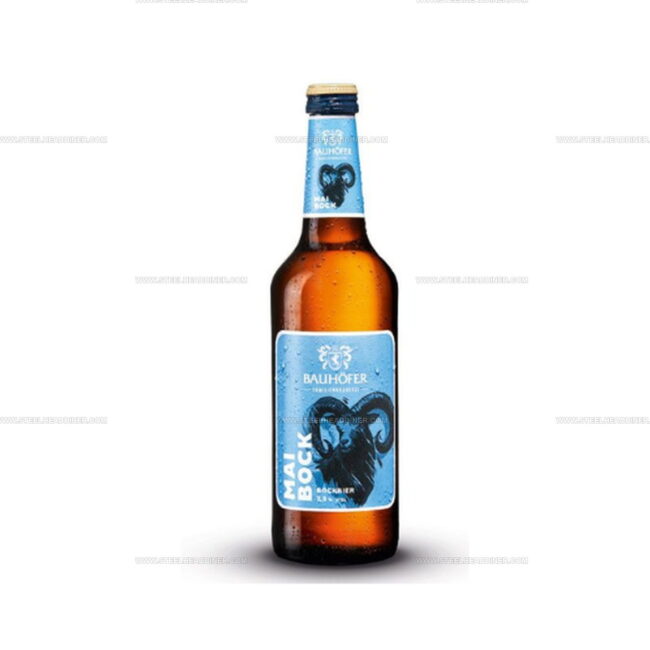
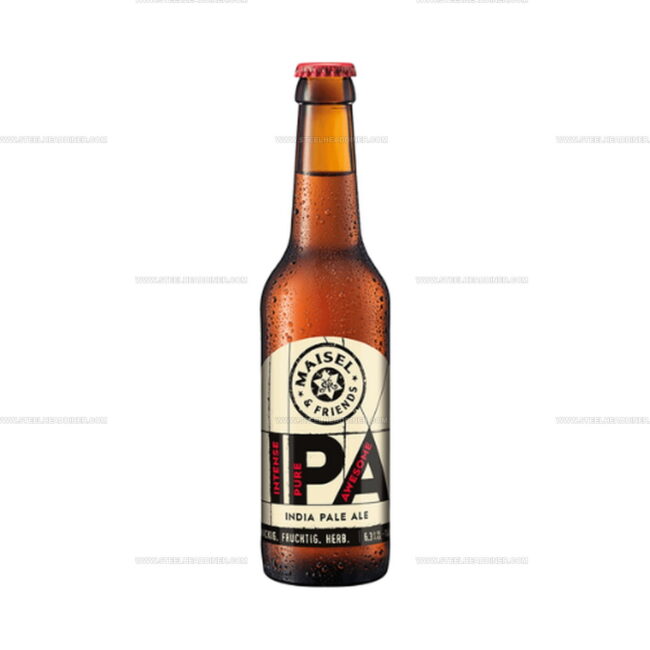
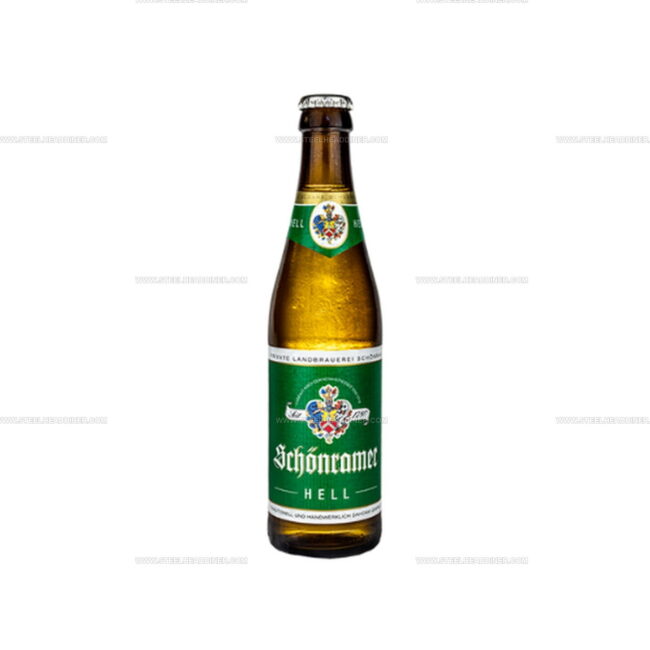
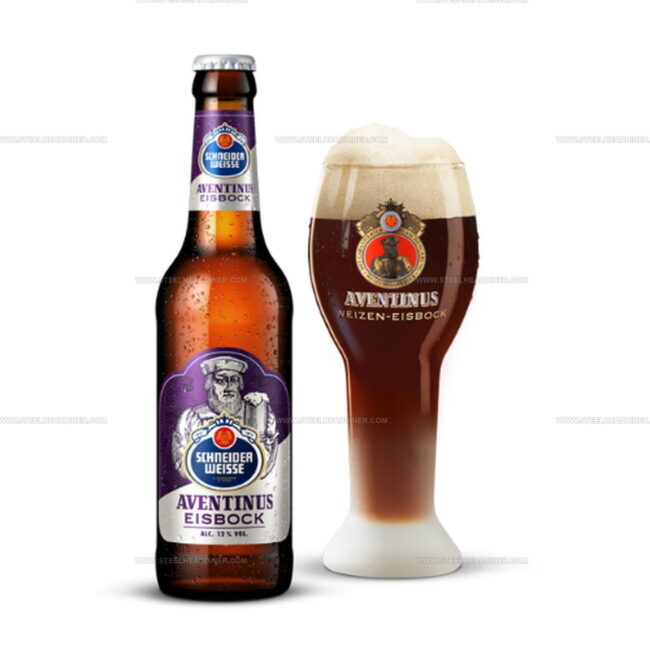
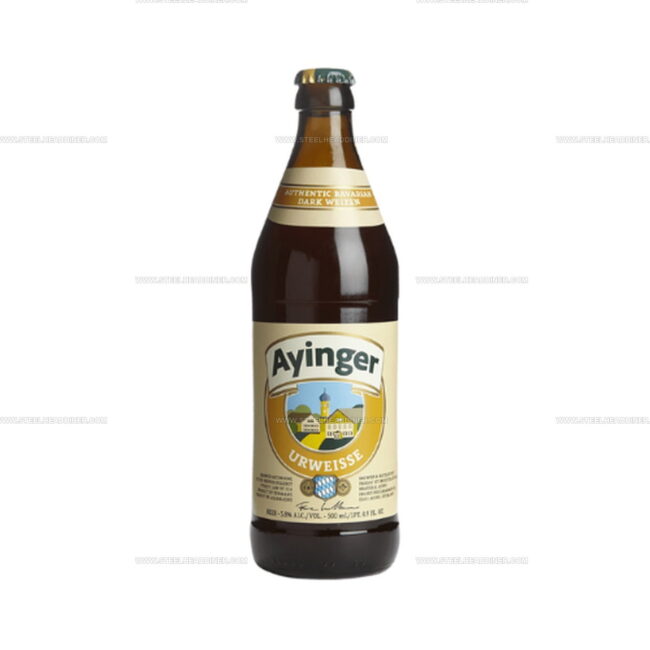
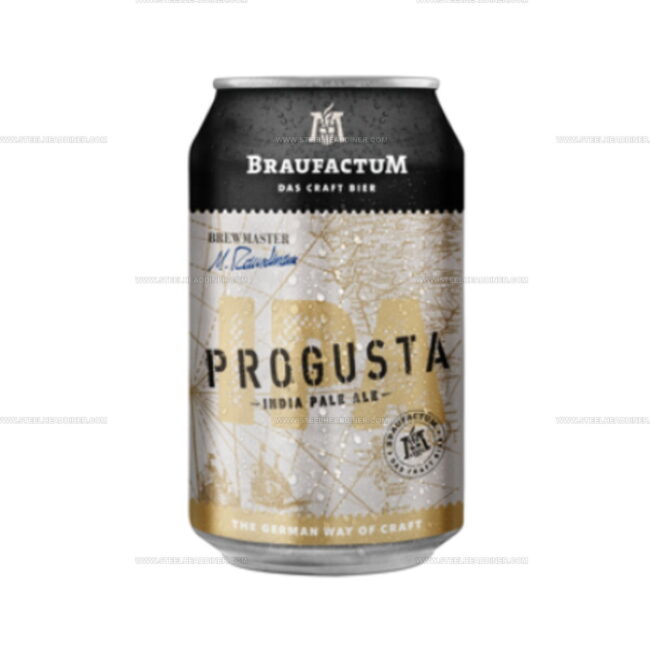
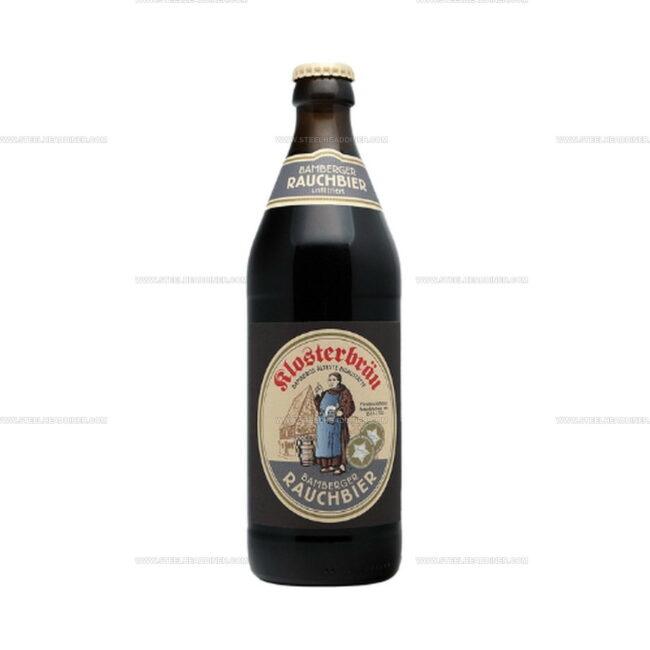
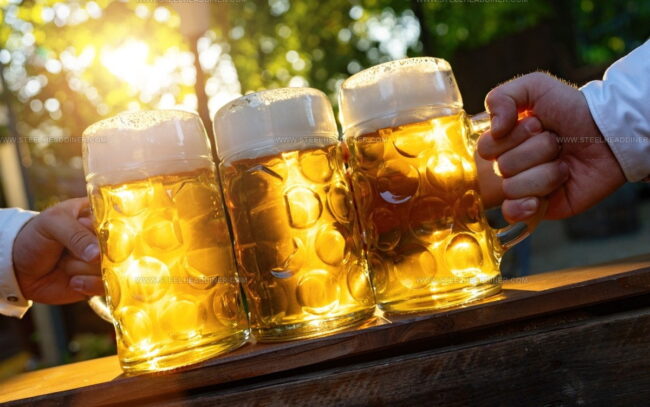
Jack Monroe
Founder & Recipe Innovator
Expertise
Pacific Northwest cuisine, Single-serving recipe development, Sustainable sourcing and cooking, Modern comfort food
Education
Brightwater
Associate of Applied Science in Culinary Arts
Focus: Sustainable cooking, seasonal ingredients, and food systems education
Jack grew up with a fishing rod in one hand and a cast-iron skillet in the other. After graduating from Brightwater: A Center for the Study of Food, he set out to prove that cooking for one could still taste like a feast.
Jack believes that food should feel real: fresh, fearless, and a little wild, just like the rivers he grew up around. For Jack, every single dish is a small adventure, and the best ones are the ones you can cook with heart, not hassle.